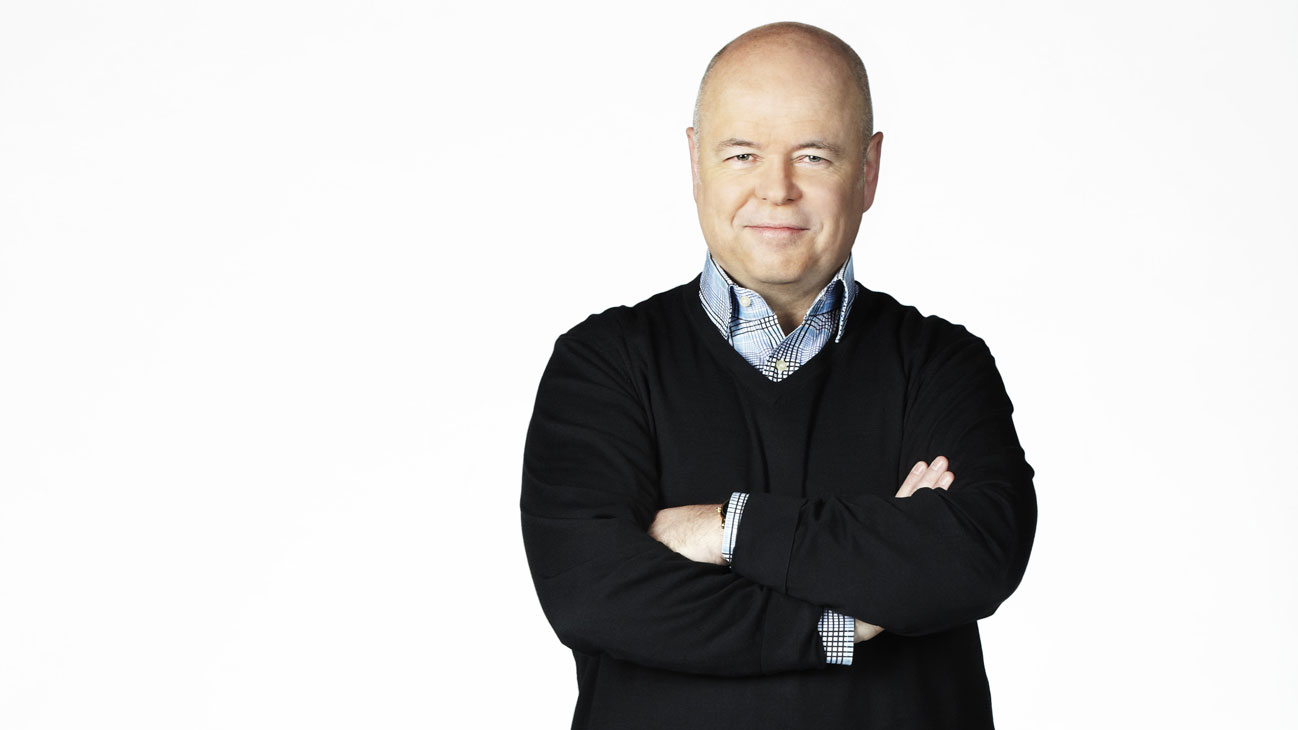Terry O’Reilly is the familiar voice behind the hit CBC radio shows O’Reilly on Advertising, The Age of Persuasion, and Under the Influence, where he explores the business, the craft, and the promise of promotion. In his intriguing talks, O’Reilly explores how our culture is shaped by marketing, as well as providing his expertise on branding, campaigns, spin, and more. Terry shares five tips for presenting ideas so you can nail your next boardroom presentation:
When I was starting out in this business, no one told me how critically important it was to be a great presenter.
In all my years in advertising, I have probably seen less than a half dozen superb presenters. You get taught a lot of things in the world of business, but presenting is rarely one of them. Yet it is probably the second most important skill to have after the ability to actually generate great advertising ideas.
Here are five tips that have always worked for me in pitch meetings.
1. PRESENTATIONS NEED STRUCTURE. Like any good story, a presentation needs a beginning, a middle, and an end. A well-structured presentation feels professional, feels smart, and feels persuasive.
2. PREPARE THE END. The most important moment in a presentation, without question, is immediately AFTER you’ve exposed the ideas. Not the lead-up, as most think, but the epilogue. Almost no one rehearses the end of a presentation. The client’s mind will be racing like a pinball machine after she’s finally seen the work, with equal parts analysis, fear of the idea, excitement, fear of what the folks back at the ranch will think, and just plain palm-sweating fear about how consumers will react. As the presenter, here is your big chance to calm all that down while the cement is still wet. Your first line after the work has been exposed should be, “Now, let’s look at what we’ve achieved here” and then you should clearly explain how the idea has carefully answered all the briefing points. You should explain how the idea is fresh and unique. How it’s unlike the competition. How the idea can easily be rolled out. How the core idea can translate to other mediums, and most of all, you should explain, with confidence, why you feel this is the right idea. Period. This is your chance to persuade your client to buy the ad. Eliminate all the obstacles to approval right here and now. If you wait until a few days after the presentation, those small obstacles will have grown into large walls.
3. NEVER LET THERE BE SILENCE. Silence immediately following a presentation smells like fear. I can’t tell you how many presentations I’ve sat through where the idea is presented, then there is a huge period of silence, then somebody meekly asks the client, “So, what do you think?” Wrong. Keep talking, keep the energy up. Persuade them the idea is right (see point #2), gently eliminating every obstacle they are forming in their head as they analyze the idea. Don’t stop talking until the client says something, then roll with the ensuing conversation.
4. NEVER TELL A CLIENT HOW TO THINK. Never, ever begin a presentation with: “You’re gonna love this!” You are setting yourself up for failure, because the first thought your client will have is, “Yeah, right.” Why work from a deficit?
5. SELL IT, THAT’S LUNCH. If you get an approval in a meeting, it’s time for lunch. I’ve seen presenters keep selling it past an approval, then actually start to buy it back. The client gets sucked back into a conversation about the ad and finds something small that suddenly bothers her, then the next thing you know you’re back to the drawing board. If it’s sold, move on.
Above all, from the moment you step into the boardroom, start to create an “atmosphere of approval.” Command the room with an easy-going, confident, positive tone. Don’t slip into business-ese, or advertising-ese, just talk like a real human being. If you’ve got them smiling and comfortable and nodding their heads at this stage, the air in that room favours approval. Then casually slip into your presentation without a formal throat clear or a sudden change in tone.
Want to become wildly successful? Become a great presenter. There are so few of them in this business.

